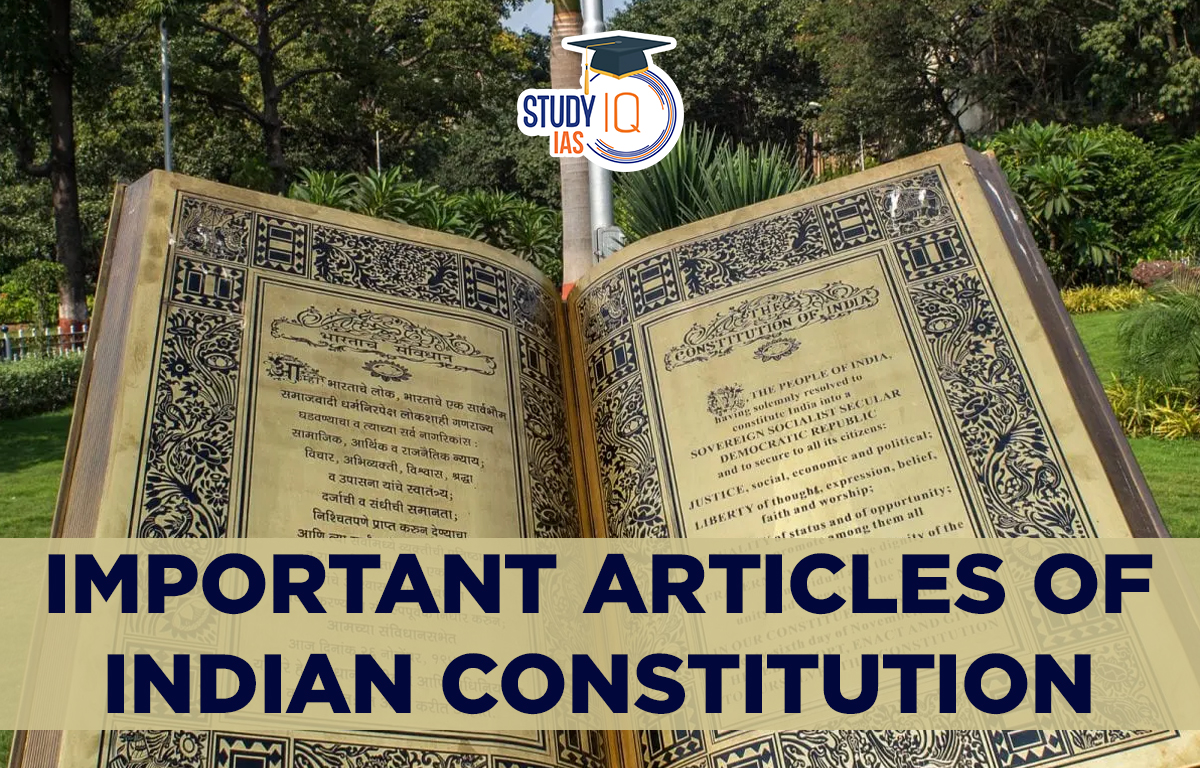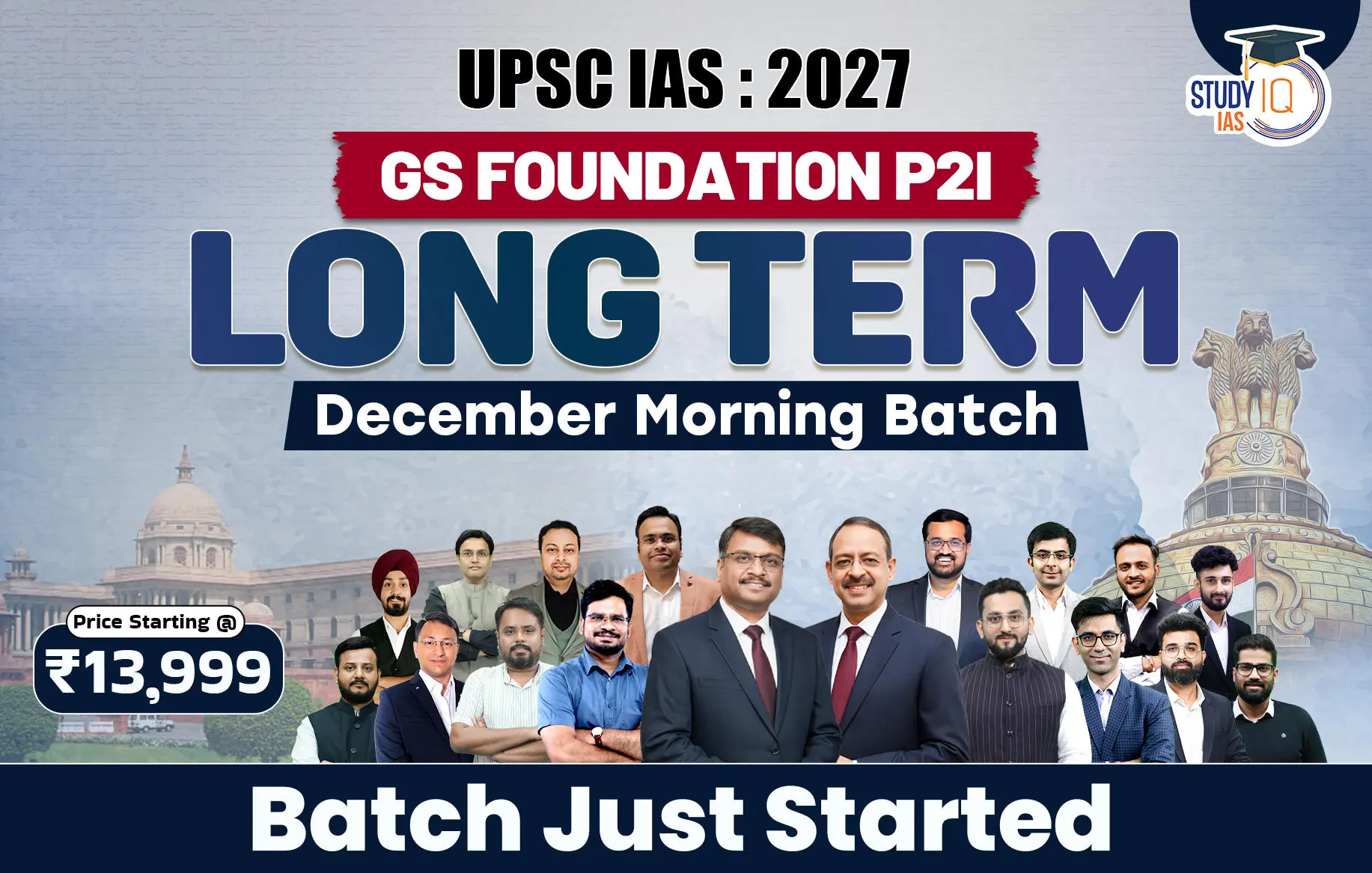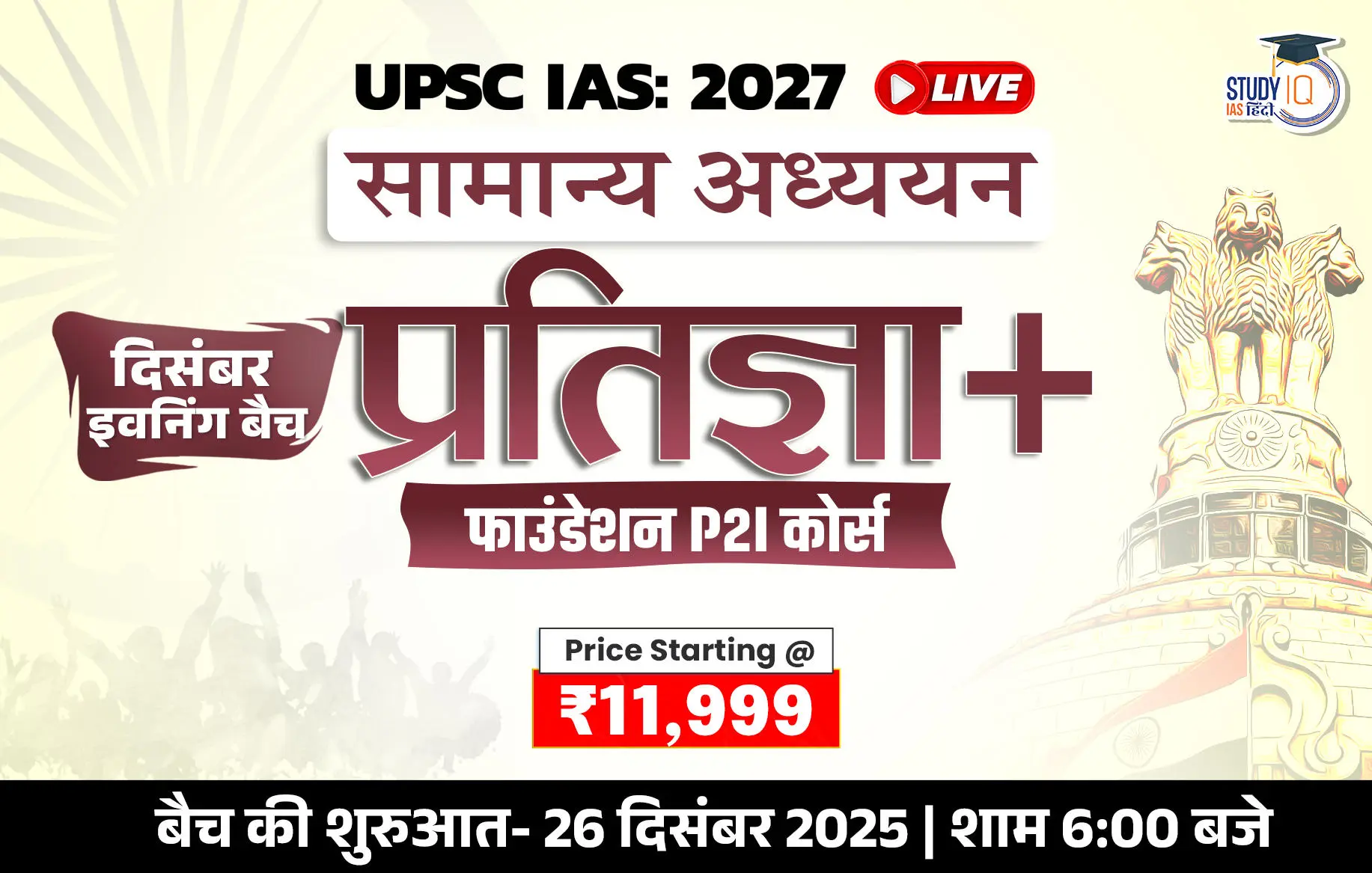Table of Contents
Important Articles of Indian Constitution
The Indian Constitution is a comprehensive document that outlines the fundamental principles and framework of governance for the country. It encompasses a wide range of articles, each addressing a specific aspect of the political, legal, and social structure of India. Among these, several articles stand out for their significance and impact on the nation’s functioning.
The Indian Constitution consists of 448 Articles divided into 25 parts, 12 schedules, and 5 appendices, with more than 100 amendments, originally it only had 395 articles in 22 parts. A constitutional article is a set of guidelines that spells out a law or group of laws; these articles cover topics like the political system, individual liberties, and electoral procedures, among others.
We’re now on WhatsApp. Click to Join
List of Important Articles of Constitution of India
Each part’s articles cover different facets of the Constitution, including legislative and executive branches, schedules, sections, statutory bodies, constitutional bodies, and fundamental rights, among other topics. The Important Articles of Indian Constitution is an important part of Indian Polity which is an important subject in the UPSC Syllabus. Students can also go for UPSC Mock Test to get more accuracy in their preparations.
|
Articles |
Importance |
| Article 12-35 | Fundamental Rights |
| Article 36-50 | Directive Principle of State Policy (DPSP) |
| Article 51A | Fundamental Duties |
| Article 80 | Number of Seats in Rajya Sabha |
| Article 243-243 (o) | Panchayati Raj Institutions |
| Article 343 | Hindi as the Official Language |
| Article 356 | Imposition of President’s Rule |
| Article 370 | Special Status of Jammu & Kashmir (Now Revoked) |
| Article 395 | Repeals Indian Independence Act and Government of India Act 1919 |
Important Articles of Indian Constitution List
Here’s the complete detailed list of Important Articles of Indian Constitution:
|
Parts of the Indian Constitution |
Subject Covered |
Articles in Indian Constitution |
| Part I | Union and its Territories | Article 1-4 |
| Part II | Citizenship | Article 5-11 |
| Part III | Fundamental Rights | Article 12-35 |
| Part IV | Directive Principles | Article 36-51 |
| Part IV A | Fundamental Duties | Article 51A |
| Part V | The Union | Article 52-151 |
| Part VI | The States | Article 152-237 |
| Part VII | Note: 7th Amendment Act, 1956 repealed Part 7 | – |
| Part VIII | The Union Territories | Article 239-242 |
| Part IX | The Panchayats | Article 243-243O |
| Part IX A | The Municipalities | Article 243P-243ZG |
| Part IX B | Co-operative Societies | Article 243ZH-243ZT |
| Part X | Scheduled and Tribal Areas | Article 244-244A |
| Part XI | Relation between Union & States | Article 245-263 |
| Part XII | Finance, Property, Contracts and Suits | Article 264-300A |
| Part XIII | Trade, Commerce and Intercourse within the territory of India | Article 301-307 |
| Part XIV | Services under the Union and States | Article 308-323 |
| Part XIV A | Tribunals | Article 323A-323B |
| Part XV | Elections | Article 324-329A |
| Part XVI | Special Provisions relating to certain classes | Article 330-342 |
| Part XVII | Official Languages | Article 343-351 |
| Part XVIII | Emergency Provisions | Article 352-360 |
| Part XIX | Miscellaneous | Article 361-367 |
| Part XX | Amendment of the Constitution | Article 368 |
| Part XXI | Temporary, Transitional and Special Provisions | Article 369-392 |
| Part XXII | Short title, Commencement, and Authoritative Text in Hindi and Repeals |
Article 393-39 |
Part 1: Article 1 – Article 4
- Article 1 –Name of the union and its territories
- Article 2 –Acceptance and creation of the new state
- Article 3 – New state creation, as well as changes to the names, boundaries, and territories of existing states
Part 2: Article 5 – Article 11
- Article 5 –Citizenship at the time the Constitution first came into effect
- Article 6 –An individual’s citizenship rights after coming to India from Pakistan
- Article 10 –Maintenance of citizenship rights
- Article 11 –The right to citizenship will be governed by law by Parliament.
Part 3: Article 12 – Article 35
- Article 12 –The state’s definition
- Article 13 –Laws that violate or interfere with fundamental rights
Articles 12 and 13 of Indian Constitution
Important Fundamental Rights of India
The Indian Constitution originally outlined seven fundamental rights, but only six remain. The 44th Amendment Act of 1978 repealed the Right to Property U/A 31. Part XII of the Constitution was amended to create the legal right U/A 300-A.
Fundamental Rights of Indian Constitution
Right to Equality: Article 14 to Article 18
- Article 14: Equality before law
- Article 15: Prohibition of discrimination on grounds of religion, race, caste, sex, or place of birth
- Article 16: Equality of opportunity in matters of public employment
- Article 17: Abolition of untouchability – The practice of untouchability is abolished and is forbidden in all forms.
- Article 18: Abolition of titles – No titles, except military and academic
Check here: Right to Equality
Right to Freedom: Article 19 to Article 22
- Article 19 –Guarantees Indian citizens their six basic rights.
- Freedom of speech and expression
- The right to assemble peacefully and without weapons
- Freedom to organize into unions or groups
- The right to unrestricted movement throughout India’s borders
- The freedom to live and establish oneself anywhere on Indian territory Omitted
- The right to practice any profession and the freedom to engage in any occupation, trade, or business
- Article 20 –Protection in respect of conviction for offences
- Article 21 –Protection of life and personal liberty
- Article 22 –Protection against arrest and detention in certain cases
Check here: Right to Freedom
Right to Exploitation: Article 23 to Article 24
- Article 23 –Forced labor and human trafficking are prohibited
- Article 24 –Prohibiting the use of young people (under 14) in factories and mines
Check here: Right Against Exploitation
Right to Freedom of Religion: Article 25 to Article 28
- Article 25 –Conscience, religious expression, and practice are all permitted without restriction.
- Article 26 –The ability to control religious issues
- Article 27 –Freedom from paying taxes to support a specific faith
- Article 28 –Freedom from having to go to religious school
Cultural and Educational Rights: Article 29 to Article 30
- Article 29 –Protection of minorities’ interests
- Article 30 –Minorities have the right to create and run educational institutions
Right to Constitutional Remedies: Article 32
- Article 32 –Article 32 of the Indian Constitution gives the right to individuals to move to the Supreme Court to seek justice when they feel that their right has been ‘unduly deprived’.
Part 6: Directive Principal of States Policy: Article 36 – 51
- Article 36 – Definition
- Article 37 – Application of DPSP
- Article 39A – Free legal representation and equal justice
- Article 40 – Forming a village panchayat
- Article 41 – Right to employment, education, and, in some circumstances, public support
- Article 43 – Living Wages, etc. for Workers
- Article 43A – Participation of workers in the management of industries
- Article 44 – Uniform civil code ( applicable in Goa only)
- Article 45 – Provision for free and compulsory education for children
- Article 46 – Promotion of educational and economic interest of scheduled castes, ST, and OBC
- Article 47 – Duty of the state to raise the level of nutrition and the standard of living and to improve public health
- Article 48 – Deals with agriculture and animal husbandry
- Article 49 – Protection of monuments, places and objects of natural importance
- Article 50 – Separation of judiciary from the executive
- Article 51 – Promotion of international peace and security
Part 6: Union: Article 52 – 151
- Article 52 –The President of India
- Article 53 –Executive Power of the union
- Article 54 –Election of President
- Article 61 –Procedure for Impeachment of the President
- Article 63 –The Vice Presidents of India
- Article 64 –The Vice-President to be ex-officio chairman the council of States
- Article 66 –Election of Vice-president
- Article 72 –Pardoning powers of President
- Article 74 –Council of ministers to aid and advise President
- Article 76 –Attorney General of India
- Article 79 –Constitution of Parliament
- Article 80 –Composition of Rajya Sabha
- Article 81 –Composition of Lok Sabha
- Article 83 –Duration of Houses of Parliament
- Article 93 –The speakers and Deputy speakers of the house of the people
- Article 105 –Powers, Privileges, etc. of the House of Parliament
- Article 109 –Special procedure in respects of money bills
- Article 110 –Definition of “Money Bills”
- Article 112 –Annual Financial Budget
- Article 114 –Appropriation Bills
- Article 123 –Powers of the President to promulgate Ordinances during recess of parliament
- Article 124 – Establishment of Supreme Court
- Article 125 – Salaries of Judges
- Article 126 –Appointment of acting Chief justice
- Article 127 –Appointment of ad-hoc judges
- Article 128 –Attendance of retired judge at sitting of the Supreme Court
- Article 129 –Supreme Court to be a court of Record
- Article 130 –Seat of the Supreme Court
- Article 136 –Special leaves for an appeal to the Supreme Court
- Article 137 –Review of judgment or orders by the Supreme Court
- Article 141 –Decision of the Supreme Court binding on all the courts
- Article 148 –Comptroller and Auditor-General of India
- Article 149 –Duties and Powers of CAG
Part 6: States: Article 152 – 237
- Article 153 –Governors of State
- Article 154 – Executive Powers of Governor
- Article 161 –Pardoning powers of the Governor
- Article 165 –Advocate-General of the State
- Article 213 –Power of Governor to promulgate ordinances
- Article 214 – High Courts for states
- Article 215 –High Courts to be a court of record
- Article 226 –Power of High Courts to issue certain writs
- Article 233 –Appointment of District judges
- Article 235 –Control over Subordinate Courts
| Part | Detail |
| Part 7 | Repealed: Article 238 |
| Part 8 | Union Territories: Article 239 – 242 |
| Part 9 | Panchayats: Article 243 – 243O
|
| Part 9A | Municipalities: Article 243P – 243ZG |
| Part 9B | Co-operative Societies: Article 243ZH – 243ZT |
| Part 10 | Scheduled and Tribal Areas: Article 244 |
| Part 11 | Center- State Relations: Article 245 – 263 |
Part 12: Finance, Property, Contracts and Suits: Article 264 – 300A
- Article 266 – Consolidated Fund and Public Accounts Fund
- Article 267 –Contingency Fund of India
- Article 280 –Finance Commission
- Article 300-A –Right to property
Part 13: Trade, Commerce and Intercourse within the territories of India: Article 301 – 307
- Article 301 – Freedom to trade, commerce, and intercourse.
- Article 302 –Power of Parliament to impose restrictions on trade, commerce, and intercourse.
Part 14: Services Under Center and State: Article 308 – 323
- Article 312 –All- India-Service.
- Article 315 –Public service commission’s for the union and for the states
- Article 320 –Functions of Public Service Commission.
Part 14A: Tribunals: Article 323A – 323B
- Article 323A –Administrative Tribunals
Part 15: Elections: Article 324 – 329
- Article 324 –Superintendence, direction and control of Elections to be vested in an Election Commission.
- Article 325 –No person to be ineligible for inclusion in or to claim to be included in a special, electoral roll on grounds of religion, race, caste, or sex.
- Article 326 –Elections to the house of the people and to the legislative assemblies of states to be based on adult suffrage.
Part 16: Special Provisions to SC, ST, OBC, Minorities etc: Article 330 – 342
- Article 338 –National Commission for the SC, & ST.
- Article 340 –Appointment of a commission to investigate the conditions of backward classes.
Part 17: Official Language: Article 343 – 351
- Article 343 –Official languages of the Union.
- Article 345 –Official languages or languages of states.
- Article 348 –Languages to be used in the Supreme Court and in the High Courts.
- Article 351 –Directive for development of the Hindi languages.
Part 18: Emergency: Article 352 – 360
- Article 352 –Proclamation of Emergency (National Emergency).
- Article 356 –State Emergency (President’s Rule)
- Article 360 –Financial Emergency
Part 19: Miscellaneous: Article 361 – 367
- Article 361-Protection of President and Governors
Part 20: Amendment of Constitution: Article 368
- Article 368 –Powers of Parliaments to amend the constitution
Part 21: Special, Transitional and Temporary Provisions: Article 369 – 392
- Article 370 –Special provision of J&K.
- Article 371A –Special provision for the State of Nagaland
- Article 371-J –Special Status for Hyderabad-Karnataka region
Part 22: Short Text, Commencement, Authoritative Text in Hindi and Repeals: Article 392 – 395
- Article 393 – Short title – This Constitution may be called the Constitution of India.
Important Articles of the Indian Constitution Schedules
|
Schedules |
Articles of Indian Constitution |
| First Schedule | Article 1 and Article 4 |
| Second Schedule | Articles: 59, 65, 75, 97, 125, 148, 158, 164, 186, 221 |
| Third Schedule | Articles: 75, 84, 99, 124,146, 173, 188, 219 |
| Fourth Schedule | Article 4 and Article 80 |
| Fifth Schedule | Article 244 |
| Sixth Schedule | Article 244 and Article 275 |
| Seventh Schedule | Article 246 |
| Eighth Schedule | Article 344 and Article 351 |
| Ninth Schedule | Article 31-B |
| Tenth Schedule | Article 102 and Article 191 |
| Eleventh Schedule | Article 243-G |
| Twelfth Schedule | Article 243-W |
Important Articles of Indian Constitution UPSC
Delhi was designated as National Capital Territory through the 69th Constitutional Amendment Act. The election of the President can be amended by a special majority of the parliament and ratification by half of the states. Article 51A explains the elements of fundamental duties. Students can read all the details related to UPSC by visiting the official website of StudyIQ UPSC Online Coaching.


 SLAPP Suits: Meaning, Examples, Impact o...
SLAPP Suits: Meaning, Examples, Impact o...
 Finance Commission of India, Articles an...
Finance Commission of India, Articles an...
 High Number of Pending Cases in Supreme ...
High Number of Pending Cases in Supreme ...

























